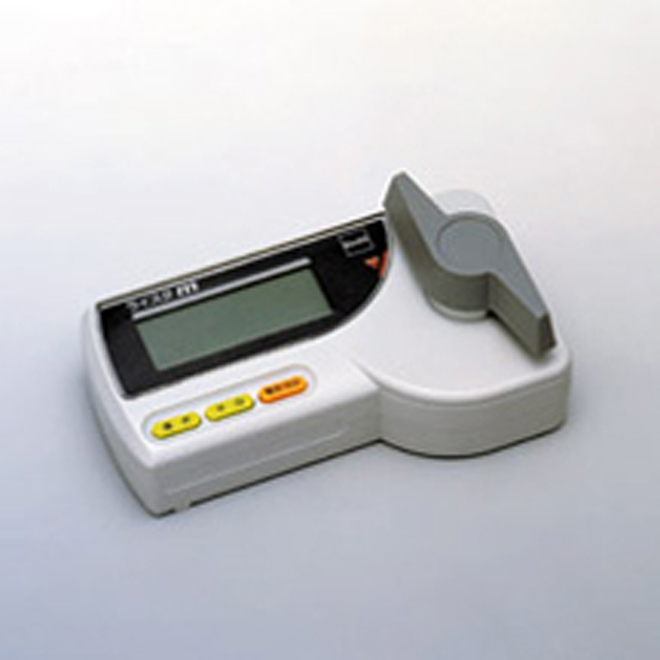Top 10 Benefits of Using a Moisture Meter for Accurate Measurements in Your Home
The Ultimate Overview to Dampness Meters: A Comprehensive Introduction and Just How They Can Save You Cash
Moisture meters serve as vital devices in discovering and checking moisture web content in materials, assisting in stopping expensive problems and ensuring the top quality of products. Understanding the subtleties of different types of wetness meters, their applications, and the potential cost-saving advantages they provide can be a game-changer for professionals and companies alike.
Types of Wetness Meters
One common type is the pin-type dampness meter, which gauges the electric resistance between 2 pins inserted right into a product. Pinless dampness meters, on the other hand, usage electromagnetic sensor plates to check a bigger area without triggering damage to the product's surface.

In addition, there are likewise specialized wetness meters developed for particular materials like hay, soil, or grain. These meters offer accurate wetness analyses tailored to the unique properties of the product being evaluated. Infrared wetness meters gauge the thermal properties of a material to establish its moisture content non-invasively, making them beneficial for applications where pin or pinless meters may not appropriate. Understanding the different sorts of moisture meters offered can assist markets pick one of the most suitable device for their certain moisture measurement needs.

Advantages of Utilizing Moisture Meters
Wetness meters provide very useful benefits in properly monitoring and assessing dampness degrees in diverse materials and settings. One of the key advantages of using moisture meters is the avoidance of prospective damage caused by excess dampness.
Additionally, making use of moisture meters can lead to boosted power effectiveness. In farming setups, moisture meters play a vital role in enhancing plant returns by enabling farmers to keep an eye on dirt dampness degrees and make informed irrigation decisions.
How to Select the Right Moisture Meter
When selecting a moisture meter, it's essential to make certain that the meter is ideal for the particular material you will certainly be screening. Different products have differing electrical residential or commercial properties that can affect dampness readings, so choosing a meter made for your product is important for exact results. By carefully reviewing these variables, you can select a moisture meter that fulfills your requirements and gives precise moisture dimensions for your jobs.
Correct Methods for Dampness Meter Usage

Expense Cost Savings Through Wetness Meter Applications
Just how can the tactical utilization of dampness meters lead to significant price savings across numerous markets? In the farming industry, dampness meters help in establishing the optimum time for harvesting crops, protecting against over-drying or excess wetness that can impact the final item's high quality.
In a similar way, in construction, dampness meters help protect against costly problems by spotting dampness levels in building materials, such as timber or concrete, which can result in architectural concerns if not attended to promptly. By determining trouble areas beforehand, specialists can take rehabilitative measures to prevent considerable repairs or replacements, eventually conserving time and money.
In addition, in the food processing industry, wetness meters are crucial for monitoring product high quality and making sure conformity with safety and security regulations. By accurately determining wetness material in food, suppliers can prevent putridity, keep quality, and minimize waste, causing substantial price financial savings. Overall, the strategic application of dampness meters is a valuable investment that can lead to substantial cost reductions and boosted performance throughout various industries.
Conclusion
Finally, moisture meters are valuable devices for next page gauging and identifying moisture levels in various products. By utilizing the ideal wetness meter and complying with proper strategies, individuals can properly stop pricey damages caused by excess wetness. Investing in a top quality dampness meter can result in considerable price financial savings in the long run by recognizing possible problems beforehand and enabling prompt removal. Inevitably, dampness meters are vital tools for keeping the stability and longevity of frameworks and materials.
Wetness meters offer as vital tools in finding and keeping track of moisture web content in materials, assisting in stopping pricey damages and making sure the top quality of products. Infrared wetness meters gauge the thermal residential properties of a material to establish its moisture material non-invasively, making them beneficial for applications where pin or pinless meters might not be suitable.Wetness meters use invaluable advantages in properly examining and checking wetness degrees in varied products and settings. In farming settings, wetness meters play an essential function in enhancing plant returns by making it possible for farmers to check dirt dampness degrees and make educated watering choices.In verdict, dampness meters are valuable devices for spotting and gauging dampness degrees in different products.